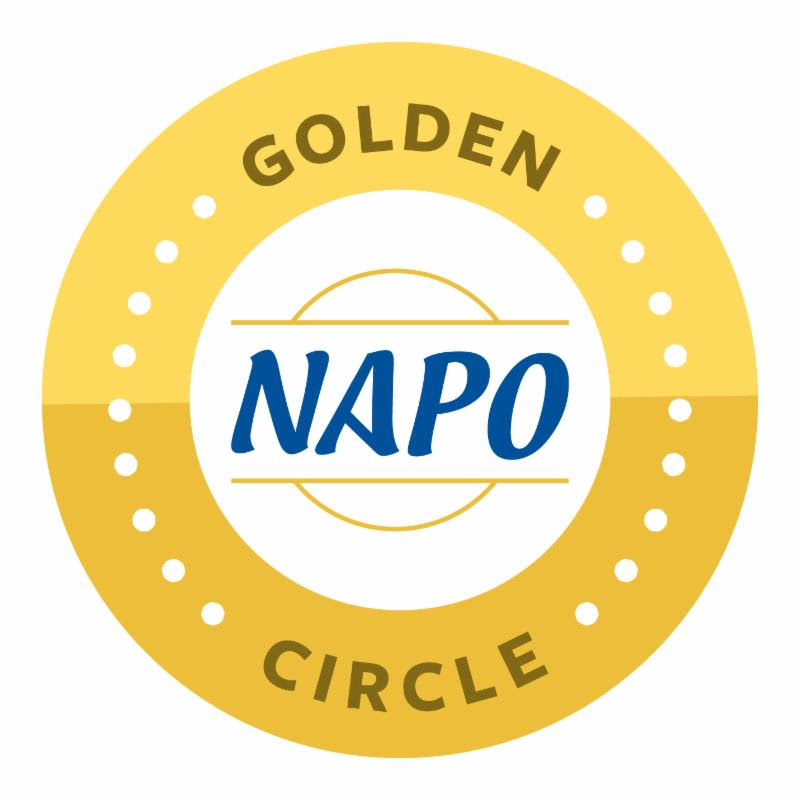The Clutter Fairy Weekly #102
A Defining Moment: What “Clutter” Means in Your Life and Home
Are some things objectively clutter, or is calling something “clutter” just a personal judgment? It’s hard to solve a problem that isn’t clearly defined, so it’s important to get clear about what we mean by clutter. In episode #102 of The Clutter Fairy Weekly, Gayle Goddard, professional organizer and owner of The Clutter Fairy in Houston, Texas, examines several definitions we can use to identify and categorize clutter and looks at how our understanding of the word impacts our approach to organizing.
Watch on YouTube
Listen to the Podcast
Click the Share button to share the podcast, download an MP3 file, or subscribe through your favorite podcast platform.
The Weekly Tittle is an exercise designed to focus your attention on a specific space, aspect, or challenge of decluttering and organizing your home. We assign a new tittle in each webcast/podcast, then check on your progress the following week.
Looking Sideways at Clutter
This week’s assignment is to evaluate a few items from your collections in light of the definitions of clutter we offered in today’s webcast. The goal is to look at familiar things from an unfamiliar perspective.
- Select three or four things in your space that make you feel confusion, anxiety, or ambivalence. (In other words, you think these items are clutter, but you’re not 100 percent sure.)
- Ask yourself these questions:
- What circumstances led to my acquiring this item? Do those conditions still apply in my life now?
- Does this item embody a past phase of my life, a source of pain I’m holding onto, or a decision that I’ve resisted making?
- Does this thing have a value (usefulness, beauty, sense of connection, etc.) that I’m no longer able or willing to enjoy?
- Would an objective observer consider this item clutter? How about someone intimately familiar with my tastes and habits?
- Now make a statement about each item: Is this clutter or treasure? It’s also okay to decide that you’re not ready to decide, but be sure to reflect on why a particular item creates this tension.
For the full discussion of this week’s tittle, watch the Weekly Tittle segment on YouTube.
Chat Transcript
Download a transcript of the chat that took place during the live event.
Note: For best results, we suggest you right-click (Windows) or control-click (Mac OS) the link above to download the chat transcript text file, then read it in your text-reader or word-processing app of choice. If you click the link directly, you may get quirky results viewing the text file in your browser.









Hi Gayle: Happy New Year 🙂 I want to thank you for taking the time to explain some aspects of ADHD as it pertains to organizing. I am one and can relate to everything you and Ed talked about.. I like the way you explained the difference in a “two-minute” task between an ADHD’r and someone who isn’t.
The differences are very important. I encourage the ADHD’r to learn everything about how differently our brains work. We are not stupid. We just have to learn how to make our tasks easier for us. You mentioned a speaker you heard explaining this topic. I would like to hear that info also. Can you send me the info please?
Thank you,
Nancy Jane
An epiphany about hanging on to things that I might need someday: The last few days we have had extreme cold weather warnings in Edmonton—windchills of –40. This is life-threatening cold and the homeless shelters are full. One of the neighbours posted on our condo message board, asking for donations of warm clothing that they would take to a collection centre for distribution. Something changed for me. The sweater I wear maybe once a year, the winter boots I was keeping in the unlikely event that my daughter might come back for a visit and it might be during a really cold spell and she might want to go outside during that visit, the earmuffs I didn’t wear at all for years—these are all things I was hanging onto because they are still good and what if I have to re-buy them again later? They still have value. But how much more value do they have for people who need them urgently, today, rather than for me, who might possibly get some slight marginal value from them some time in the future? I realize that I should not hoard the value, I should maximize the value—and that comes from passing them on.